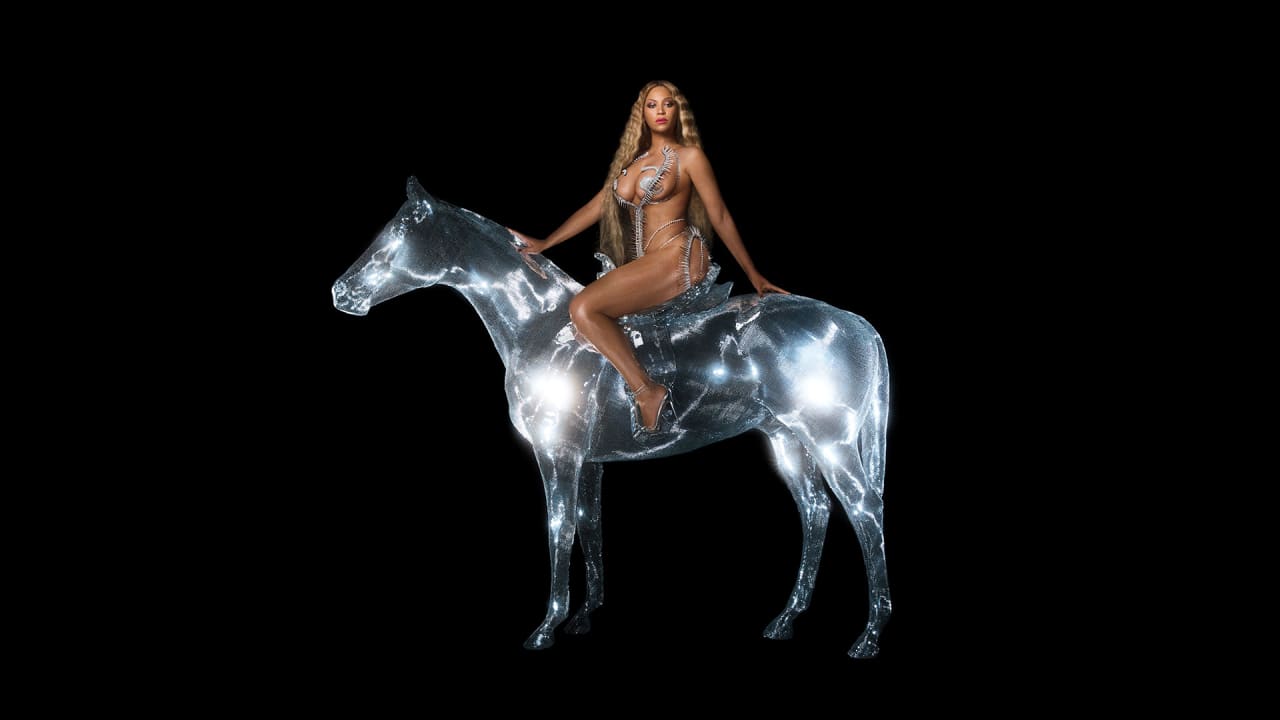
Club Renaissance finally landed, and Beyoncé demands that we dance.
Beyoncé released her long-awaited seventh solo project, Renaissance, last Friday, a booming, energetic album full of bangers we would have danced to in the club before the world was on fire.
Unlike her previous albums, Renaissance strays from brazen political messaging in exchange for a pulsing sweaty dance floor. Beyoncé was an exploration in feminism and sexuality. Lemonade delved into the trials and tribulations of marriage in relation to the Black family. But Renaissance exists exclusively as a dance album meant to provide a reprieve from the world around us.
Beyoncé knows we’ve all spent the better part of the three years yearning to party safely again. Early 2020 to now has been marred by a pandemic—with another virus surging—racial justice marches, the disastrous effects of climate change, an impending recession, and an ongoing political circus. There is no escape from our current moment or our own personal plights. But even for just an hour, Beyoncé grants us access to unfettered joy and ecstasy through Renaissance.
And it’s a joy that Beyoncé herself felt while recording this three-act project during the pandemic, which, in a post on her website, she called “a time to be still, but also a time I found to be the most creative.”
“Creating this album allowed me a place to dream and to find escape during a scary time for the world,” Beyoncé said. “It allowed me to feel free and adventurous in a time when little else was moving. My intention was to create a safe place, a place without judgment. A place to be free of perfectionism and overthinking. A place to scream, release, feel freedom. It was a beautiful journey of exploration.”
The inspiration for her exploration was largely disco and house music, as well as ballroom culture, an underground scene born of Black and brown queer and trans artists in the ’90s. Beyoncé dedicated Renaissance to her uncle Johnny who passed away due to complications from HIV when she was 17 and served as her guide into this space.
“He was my godmother and the first person to expose me to a lot of the music and culture that serve as inspiration for this album,” Beyoncé said in a post. “Thank you to all of the pioneers who originate culture, to all of the fallen angels whose contributions have gone unrecognized for far too long. This is a celebration for you.”
Listening to Renaissance feels other worldly, especially with tracks like “Alien Superstar,” the instant disco hit “Cuff It,” and the ballroom-inspired “Heated,” which speak to that particular release of freedom echoing throughout the album.
There will be critics who question whether a dance album is really the medicine we need right now, and it’s a fair concern to raise. Can anyone truly escape the hellfire that is reality? But it would be wise to remember that even during times of global strife, the songs that made people dance were released in conjunction with songs that had something more to say. In our current moment, trans and queer people are being endangered politically, physically, and emotionally. Centering the most vulnerable on an album relative to emancipation and unequivocal bliss is no accident. But centering the most vulnerable in this narrative sends a clear message that liberation cannot come at the cost of exclusion. We’re not free until everyone is free.
Renaissance is a lesson in reinvention. After a 25-year career, the normally restricted pop star has let loose and had fun as evidenced by lyrics like “tig ol’ bitties” and “you said you were outside, but you ain’t that outside.” This Beyoncé has heeded our calls for enjoyment and healing. Club Renaissance, is a sanctuary, a safe place for those to gather and party (responsibly).


